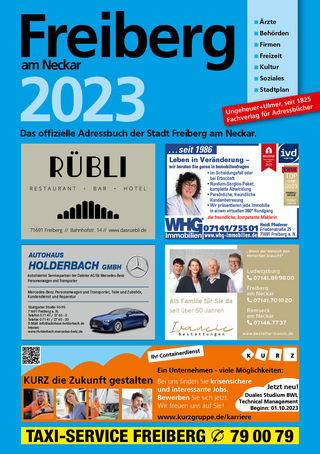
The Representation of Ruling and Opposition Parties in State-owned Newspapers in Contemporary Ghana
Anchor Academic Publishing (Verlag)
978-3-96067-133-6 (ISBN)
Eric Kwadwo Amissah obtained both his CoMundus European MA degrees in Communication, Media and Cultural Studies from the University of Firenze, Italy and Roskilde University, Denmark in 2011. He obtained both BA in Publishing Studies and MA in Art Education degrees in 1999 and 2006 respectively at Kwame Nkrumah University of Science and Technology, Kumasi, Ghana.
The author is a Senior Lecturer at the Department of Graphic Design Technology, Faculty of Applied Arts and Technology, Takoradi Technical University (formerly Takoradi Polytechnic), Takoradi, Ghana, and a PhD candidate at the University of Education, Winneba, Ghana.
He has solely authored and published two books and co-authored two Graphic Design textbooks. He has also written several articles which have been published in both local and international journals, and participated in numerous seminars, forums and conferences on graphic design and media. He is a Publisher/Printing, Graphic Designer and Media Analyst.
Furthermore, the author is a social commentator and has been featured in radio and television programmes as a media analyst/reviewer on matters relating to politics, economic, social and culture on SKYY 93.5 FM Station Morning Show, Takoradi, Ghana. He is married and has two children.
Text Sample:
Chapter Four:
Case Study: An Analysis of Political News Articles in Ghana:
Introduction:
In order to sustain my argument that: "can unequal power relations be identified in political news discourses in state-owned newspapers on not explicitly polarised issues?" I would focus on one particular case study, which will be illustrative of the topic in question. The case study will involve an analysis of political news articles published by one of the state-owned Ghanaian newspapers the Daily Graphic on the representation of the Other in Ghana politics.
The case was selected based on a multitude of considerations. Firstly, instead of newspapers in Britain or the United States of America (USA), I decided to focus on a newspaper from Ghana. Secondly, given a common interest in textual analysis, I decided to focus on a newspaper in Ghana as the source of data for my analysis. Furthermore, another consideration involved the fact that articles from a newspaper are easier to collect and document than TV and radio broadcastings. Finally, the articles were selected from the newspaper because of its large circulation and its distinct ideological stances, which makes it representative of the Ghanaian mainstream quality press and the mass media as a whole, both in quantitative terms (that is, number of readers) and in qualitative terms (that is, range of views held by readers).
The Daily Graphic is the leading quality national newspaper (state-owned), with a daily average circulation of 200,000 copies in 2010, established along the UK based Sunday Mirror by Cecil King , a British newspaper magnate in 1950 and considered to be a Ghanaian institution. It is owned by Graphic Communication Group Limited, printed and published in Accra, and dominates the morning market with no serious competition at regional and district level. This explains why the newspaper is a central source of information and considered to be credible by its larger readers, and it is often the main reference for other media and for public opinion formation, and interacts as an essential platform for political actors in the country.
As a well-established newspaper, which claims to give thorough coverage of different issues and to base its contents on facts, its style is less likely to create open polemics and conflicts, as opposed to other types of newspapers that draw their appeal on sensationalist coverage, thus making it an interesting source of data in relation to my argument about the existence of polarisations in the representation of the "Other" even in contexts in which there is no open conflict. Furthermore, it is possible to access the whole news archives online and free of charge, unlike some of the newspapers initially considered as possible sources of data.
In my quest for a representative and appropriate subject which could address my analytical goals and simultaneously, be related to my primary interest of understanding the representation of the Other by the media, I decided to focus on Ghana Politics. The fact that the country had been and continued to be scrutinised by concerned-citizens and other media, both internally and internationally, contribute to making this study a challenging case to be analysed in relation to my argument. Moreover, given the present distribution of political power in Ghana, according to which the ruling political party and the party in opposition are positioned in different categories in terms of the respective political power and control, my case study seems particularly relevant and compelling. It could be further argued that the aforementioned political power and control division operates as a trigger to the Othering in politics within discourses produced in Ghana. Thus, this dimension maximises the relevance of the case study in the context of my argument. Based on the above considerations, the research questions which will guide my research are presented below.
Cardinal Question:
Can unequal power relation
| Erscheinungsdatum | 14.05.2017 |
|---|---|
| Sprache | englisch |
| Maße | 155 x 220 mm |
| Gewicht | 202 g |
| Themenwelt | Sozialwissenschaften ► Kommunikation / Medien ► Allgemeines / Lexika |
| Sozialwissenschaften ► Kommunikation / Medien ► Medienwissenschaft | |
| Schlagworte | Case study • Critical Discourse Analysis • Daily Graphic • Mediated and Mediatized Politics • Othering • Political/Media Nexus • Political News Article • Political News Discourse • Politics in Ghana • The Other |
| ISBN-10 | 3-96067-133-4 / 3960671334 |
| ISBN-13 | 978-3-96067-133-6 / 9783960671336 |
| Zustand | Neuware |
| Haben Sie eine Frage zum Produkt? |
aus dem Bereich


